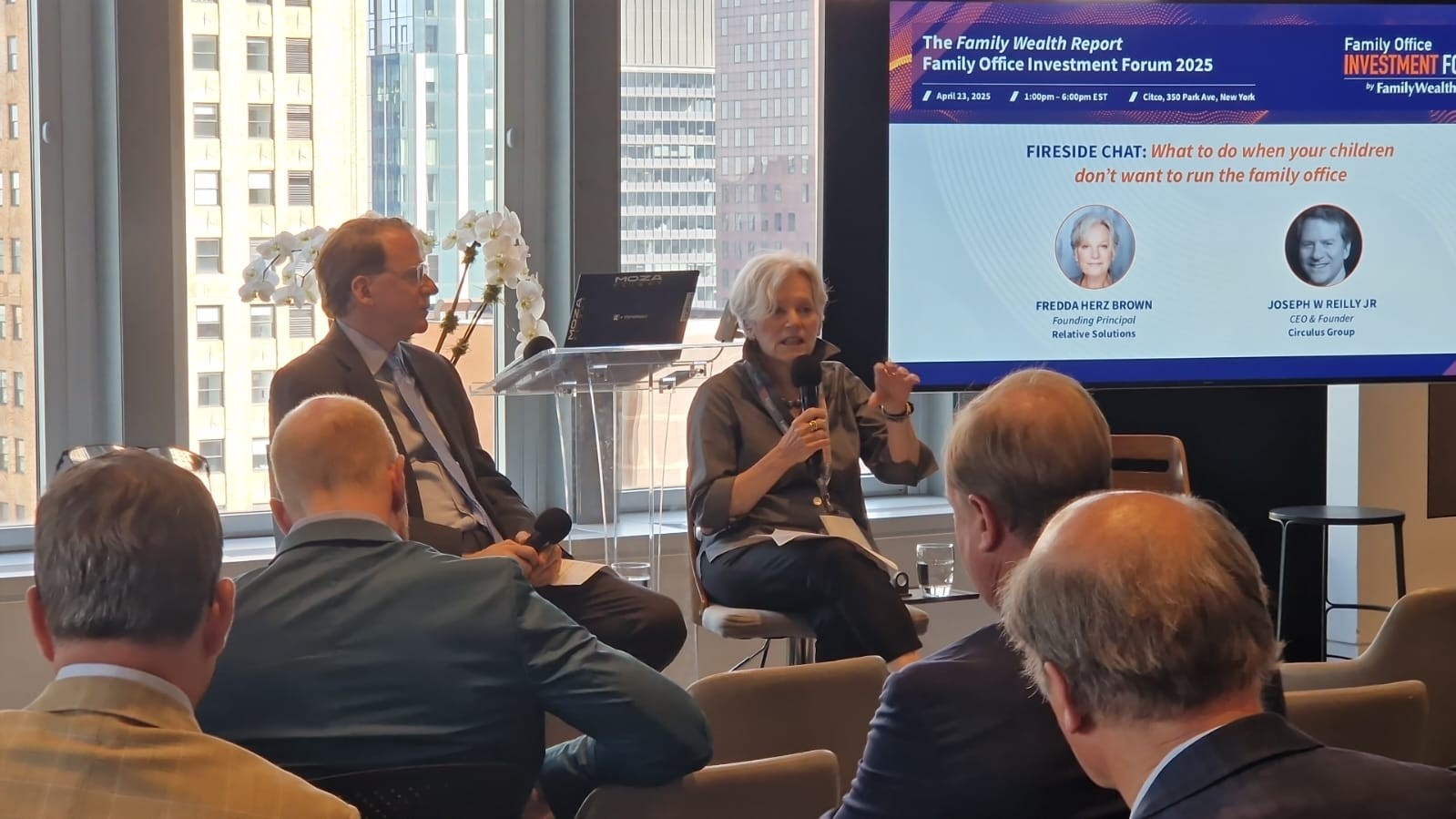Practice Strategies
Legacy In Motion: Fredda Herz Brown On Family Members In The Family Business

The following conversation took place at last week’s Family Wealth Report Investment Forum in New York, featuring Fredda Herz Brown, talking with Joe Reilly, a regular writer for FWR and founder and CEO of Circulus Group.
In family enterprises, the handover of leadership and legacy is often imagined as a formal, orchestrated event. But according to Fredda Herz Brown, a seasoned advisor to multigenerational families, the real work begins much earlier and often in moments far less scripted.
“It’s never too early,” Brown shared with interviewer Joe Reilly during the recent Family Wealth Report Investment Forum in New York (see a related report by our US correspondent, Charles Paikert, here.) “Too late is when you need somebody and you're about ready to walk out the door. I've seen where somebody, right at the point they really want to retire, is when they really start seriously thinking about now what do I do?”

L-R: Joe Reilly and Fredda Herz Brown
Brown advocates for a generational approach to continuity and one that is less about titles and timelines and more about building fluency, connection, and a shared sense of purpose from an early age. In some families, she noted, even young children are invited into the room, not to weigh in on decisions, but to absorb the rhythm of discussion, to see that serious topics can be discussed openly, and to sense that they, too, are part of the unfolding story.
But what happens when the story diverges and when a child grows up and says they don’t want to be part of the business?
One story she shared involved a young woman who was the family’s largest asset holder and who wanted no involvement in the business or the family office. The challenge, then, became less about drawing her back in and more about respecting her autonomy while preserving the relationship and knowing that the situation may not be for life.
This emotional complexity is especially apparent in the “in-between” years when young adults are out of college, unsure of their place in the family ecosystem. Brown noted that most people don’t know what they want to do after college. She described one family that imposed a rule: no one could work in the business until they had spent at least five years elsewhere. They had a structure and a board and an educational program so they could be involved in learning about it but had to make their own way in the professional world.
It’s this intentionality and this slow cultivation of readiness that Brown sees as essential. Not everyone will take on a leadership role. But everyone, she believes, can be brought into a culture of ownership. That, too, is a kind of stewardship.
"What a family office does is not just invest financial assets, but you also invest in the people. Right? I think. And so, investing in your younger generation is a really important thing to do,” she said. She encourages families to build internal mentoring structures, especially between board members and younger generations, as a way of cultivating leadership before it's needed.
Brown’s notion of resilience also weaves throughout her approach. For her, it’s not an heroic bounce-back from hardship, but a family’s ability to bend, listen, and adapt together. “I think resilience is a muscle and it doesn't demand that you have a really hard time but…it demands a sense of confidence in yourself, an ability to know that other people have faith in you.”
That invitation, she believes, begins not with a succession plan, but with a conversation: one that starts early, adapts often, and prioritizes belonging over obligation.
Because in the end, the strength of the enterprise lies not in its assets – but in the people entrusted with its future, she said.
Fredda Herz Brown, founding principal, Relative Solutions, is among other accomplishments, author of the Family Wealth Sustainability Toolkit and is the partner of The Metropolitan Group.
